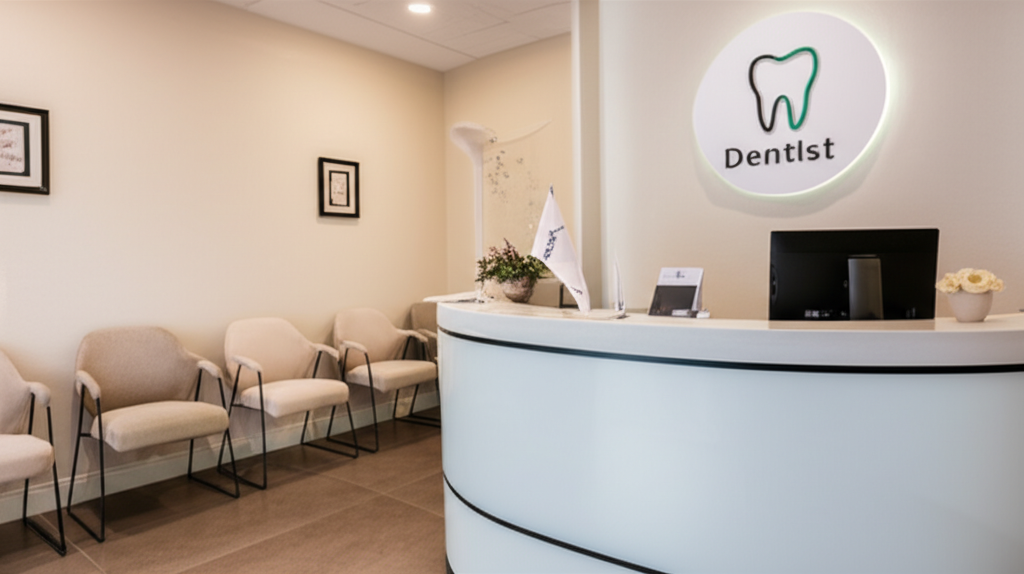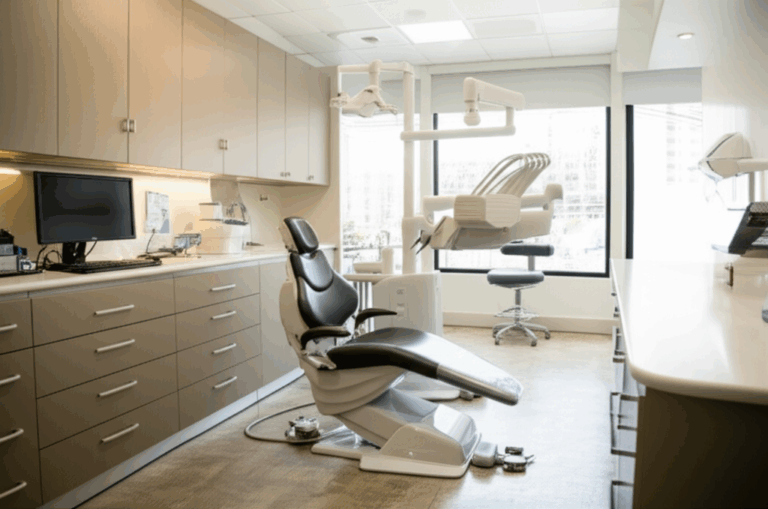
How to Open a Dental Clinic: Your Step-by-Step Guide to Building a Successful Dental Practice
That dream of seeing your name above the door, welcoming your first patient, and building a dental practice you truly believe in—it’s a big one. If you’re a dentist (or someone working with one), you’ve probably heard how hard starting a dental clinic can feel. There’s talk of big costs, lots of rules, and the work of getting patients in the door. It’s easy to wonder: Is opening a dental clinic possible? Can I do this without getting lost in details… or in debt?
Let’s pause a sec. You’re not the only one. Almost every clinic owner has stood right where you are, asking the same questions. In this guide, you’ll find a simple road map—written for you, not big companies or big investors.
We’re going to break down everything: planning, money, rules, building your team, marketing, and growing your clinic. Even better, you’ll see the reason behind each step—not just a list to follow without thinking.
What We’ll Cover
In This Article:
- Why Open Your Own Dental Clinic? The Real Benefits (and Challenges)
- Phase 1: Laying the Groundwork—Vision, Business Plan, and Compliance
- Phase 2: Crunching the Numbers—Costs, Funding, and Financial Realities
- Phase 3: Location, Design, and Construction—Creating Your Space
- Phase 4: Equipping Your Practice—Technology, Tools, and Partners
- Phase 5: Building Your Team and Shaping Daily Life at the Clinic
- Phase 6: Attracting and Keeping Patients—Marketing, Branding, and Growth
- Your Opening Day and Beyond: Final Steps and Long-Term Success
- Frequently Asked Questions About Opening a Dental Clinic
- Key Takeaways and Your Confident Next Steps
Why Open Your Own Dental Clinic? The Real Benefits (And Challenges)
So—why make the jump from employee to owner, or from dream to real life? Here’s the truth: opening a dental clinic isn’t just about money or a nice nameplate. It’s about running your own style of care, building jobs, and making real connections with your community. You get to pick your team, set your rules, decide how people are greeted, and how they feel long after they leave.
The good stuff:
- Control: You make choices. Pick your services, your tools, and even which toothpaste goes on the shelf.
- You Grow Fast: Owning a clinic makes you learn about business, being a leader, and personal growth quickly.
- You Can Earn More: With a good plan and loyal patients, a dental clinic can be worth a lot in the long run.
- Local Impact: You’re a big help to your town, keeping people healthy and happy.
Of course, owning isn’t easy. The real problems? Juggling patient care and running the business, paying off startup loans, following all the rules, and—most of all—getting those first patients in the door. That’s why it’s smart to take it step by step.
Phase 1: Laying the Groundwork—Vision, Business Plan, and Compliance
Turning Your Dream Into a Business Plan
Think of yourself six months from now. Your idea is more than wishful thinking—it’s a plan. But how do you make it real?
1. Making Your Business Plan
Think of your plan as your clinic’s “map.” It’s not just for banks—it helps you get honest about what you want, what you’ll do, and if your dream actually can pay the bills.
- Summary & Vision: Who do you want to help? What will make you different from the clinic down the street?
- Who’s Out There?: Who are your dream patients? Where do they live? Who are you competing with? Knowing this helps you aim your services and ads the right way.
- What Will You Offer: Will you do general dentistry, or focus on braces, kids, implants, or making smiles look better? Will you use new things like digital X-rays?
- Money Forecast: You’ll need simple cost guesses—including how much to start, what you’ll spend each month, and how much you might earn. (More on this in Phase 2.)
A clear plan helps you (and anyone lending you money) believe your clinic can succeed.
2. Getting Your Legal Stuff Right
You’ll need to pick a business type—LLC, S-Corp, or partnership, depending on your needs and local rules. LLC is usual for smaller clinics, as it’s pretty easy, but always talk to an accountant and lawyer who knows dental rules.
- Register Your Business: File with your state and get a Tax ID (EIN).
- Get Licensed: Check your state dental board! You’ll need a personal license and a license for the clinic. Some places need extra permits for certain things, like if you put people to sleep.
- Permits & Where You Can Work: Make sure you can have a dental clinic in the spot you want—or you could face delays and extra costs.
- Following the Rules: Details matter. You need clear ways to follow HIPAA privacy rules and OSHA safety rules. If you get this right early, life is easier later.
Phase 2: Crunching the Numbers—Costs, Funding, and Financial Realities
The Honest Breakdown on Dental Practice Startup Costs
Opening a dental clinic costs real money. But if you know where every dollar goes, you keep away bad surprises and focus on what’s most important.
Usual Startup Costs (for 3-5 Dental Rooms)
- Building or Fixing Up: $150,000–$400,000 or more
- Buying Equipment: $120,000–$350,000 or more (think chairs, digital X-ray, cleaning machines)
- Starting Supplies: $10,000–$50,000
- Professional Help: $15,000–$40,000 (lawyer, accountant, expert advice)
- Marketing/Branding: $10,000–$30,000 (website, signs, opening event)
- Cash to Run the Clinic (3-6 months): $60,000–$180,000 (wages, rent, bills)
Total: Most clinics spend from $350,000 to $800,000+ to open, but being smart (like buying good used tools or getting a good deal on your lease) can keep some costs down.
How to Pay for Your Clinic: What Are Your Choices?
- SBA Loans: Government-backed loans made for small businesses are popular with dentists. Down payments are low (about 10-20%) and you get years to pay it off.
- Bank Loans & Credit Lines: If your credit and plan are good, some banks will help at fair rates.
- Leasing & Payment Plans: Spread out big costs for gear and save cash for rent or payroll.
- Your Own Money or a Quiet Partner: Some dentists use their savings or bring in a partner who doesn’t work there.
Tip: Only talk to lenders who understand dental clinics—lots of banks have special people just for healthcare.
Monthly Bills and When You’ll Break Even
Let’s be real: Your first year, most of what you earn (about 65–75%) will go out again (rent, payroll, supplies, loans, advertising). Building up patients takes time. Most new dental clinics make back their starting money in 18 to 36 months.
How much will you take home? After paying everyone and your loans, you’ll probably bring home 25–40% of what you earn (after year one—it’s lean at the start).
Phase 3: Location, Design, and Construction—Creating Your Space
Where Your Clinic Is—And Why It Matters
Where you put your clinic isn’t just about being close to home. It can mean steady work or lots of empty days.
Finding Your Clinic Spot
- Who’s Nearby: Is the clinic close to people you want to serve? Are there schools or older folks nearby? Businesses mean more people pass by.
- Easy to Get To: Good parking, first-floor entrances, and bus stops help people show up.
- Competition: Check out other clinics nearby. Too many dentists in one part of town? Maybe try another area, or offer something different.
- Rent or Buy: Most new owners rent at first so they don’t need a big down payment. If you find the perfect spot and can afford it, owning could be good later on.
Designing for Patients and Staff
Great clinics are cozy, quick to move through, and safe. How you set things up changes everything from patient smiles to staff happiness.
- Dental Rooms: How many do you need now? Want to add more later? Plan for it.
- Front Room: How people feel when they walk in matters! Make it comfy, friendly, and clear.
- Staff Spaces: Don’t forget lunch and break rooms—happy staff matter.
- Sterilization & Lab Areas: Follow strong rules for cleaning. Make sure it’s easy to clean tools quickly and safely.
- Ready for the Future: Dental tech is changing fast. Put in plugs and systems for digital X-rays or 3D images if you want to get fancy later.
You don’t need to be an architect, but hiring one who’s worked on clinics before is a great idea.
Phase 4: Equipping Your Practice—Technology, Tools, and Partners
Now your clinic really starts to take shape. Every chair you buy and every software you use changes how you work and how patients feel.
What Should I Buy for My Clinic?
Think about your tools like your work buddies—they help make care easy or hard.
Basics You Need:
- Good dental chairs (easy on you and the patients)
- Digital X-ray machines (better pictures, less radiation)
- Panoramic or 3D X-ray machines, if you want to offer more
- Reliable sterilizers (follow safety rules)
- Dental handpieces and cleaners
- Computers and monitors for scheduling and teaching
- Trusted partners for crowns, bridges, and other special dental work
Computer Software and IT
Practice management software (PMS) is a must. It helps you book visits, talk with patients, handle bills, and keep your data safe.
Popular ones: Dentrix, Eaglesoft, Open Dental.
Look for:
- Easy to Use: Your reception team shouldn’t hate it!
- Works With Other Gear: Can it talk to your X-ray and reminder system?
- Safe With Data: Keeps private info locked up.
Tip: Pay for good computer wiring and security. Back up your files and stay safe from hackers.
Where to Get Supplies and Lab Help
Pick vendors for more than just their prices. Good quality, fast shipping, and clear answers matter. Find partners you can trust for crowns, implants, or night guards that fit your clinic.
Phase 5: Building Your Team and Shaping Daily Life at the Clinic
You could have the nicest stuff in town, but if your team isn’t great, patients notice. Getting your dream team takes time and heart.
Who Should I Hire?
- Hygienists & Assistants: They keep patients happy and on time
- Front Desk: Friendly faces, great on the phone, know how to handle scheduling, billing, and problems
- Manager: The glue that keeps the place running—handles HR and daily issues
How to Attract and Keep Good Staff
- Hiring: Use dental job websites, ask at local schools, and see if friends know someone great
- Training: Show new people how you do things, your values, and your systems. Checklists help avoid mistakes
- Pay & Perks: Pay about what others do nearby. Good perks mean people stay
Ways to Make Things Run Smooth and Safe
- Good Systems: Scheduling, patient info, and payments—make it as automatic as you can
- Follow Safety Rules: OSHA and cleaning lessons should keep happening. Not just once.
- Wow Patients: Teach them about dental care, keep your waiting room nice, and remind them about upcoming visits. These little things create loyal fans
Phase 6: Attracting and Keeping Patients—Marketing, Branding, and Growth
Now the big part—getting those patients and making them stay.
Making a Brand
Start simple:
- A name people remember
- Easy logo and welcome sign
- A useful website
Simple Ways to Market Your Clinic
- Local Google Results: Keep your Google My Business page filled out, right hours, services, and reply to reviews
- Ads: Try pay-per-click ads to catch folks moving in or needing quick dental help
- Social: Share before-and-after photos (get permission!), staff stories, tips, and what you’re doing locally
- Handle Reviews: Reply to every review, good or bad, with respect
Getting Patients to Come Back
- Use recall reminders so patients remember checkups
- Offer simple membership plans for those without insurance
- Get involved in your area—go to health fairs, school days, or charity work
Want more ideas to keep patients and build loyalty? Check out our guide on dental problems and see how focused care makes patients happy.
Your Opening Day and Beyond
The day you flip the “Open” sign feels amazing and scary. Remember, your first months are all about figuring out what works and changing what doesn’t. Slow days happen to everyone.
Before You Open:
- Finish all checks (health, fire, building)
- Make sure insurance companies have you in their systems
- Stock your shelves and check every tool/machine
- Do one last team training session
- Pick a “grand opening” date and make it big—invite other local businesses and people
Frequently Asked Questions About Opening a Dental Clinic
How much does it REALLY cost to open a dental practice?
Most places say you’ll need about $350,000 to $800,000 to start, depending on where you are, tools, space, and starting cash.
What are the biggest money mistakes new owners make?
Guessing too low for how much building and gear costs, not having enough cash for the first few months, and thinking patients will come right away. Always have a little extra saved.
Is buying an existing clinic easier?
Sometimes. You get patients and staff right away. But you may also get old tools, a bad location, or past problems. Always check things very carefully.
How long until my clinic makes money?
Plan on 18–36 months before you aren’t losing money. Some do it quicker, but don’t count on it.
Where can I find help with rules and paperwork?
Check with your State Dental Board, the American Dental Association, or find a dental consultant or lawyer.
Still got questions? Dentistry changes fast—especially as digital tools and new lab materials grow. For lab options, take a look at a good china dental lab if you want to send work abroad or try global deals.
Key Takeaways and Your Confident Next Steps
Simple summary:
- Plan First: Write out your plan and fix it as you learn
- Know Your Costs: Save for $350K–$800K to start, and know it’s slim in the beginning
- Stick to the Rules: Keep up-to-date with rules from day one
- Pick Carefully: Where you set up, tools, and team shape your future
- Get Good People: Your team is everything
- Keep Marketing: Don’t stop getting the word out—even the best dentist needs new faces
- Always Learn: The best clinics listen and keep getting better
Opening a dental clinic is tough but super rewarding. Each challenge makes you stronger, and you change lives with every smile you fix.
When stuck, ask for help, look at facts, and trust those who’ve built a clinic before. Take it one step at a time—soon, you won’t just be “open.” You’ll be doing great.
Sources: American Dental Association (ADA), Small Business Administration, and dental practice consultants.
Ready to get started? Begin with your business plan, and save this guide—you’ll come back to it more than you think!








